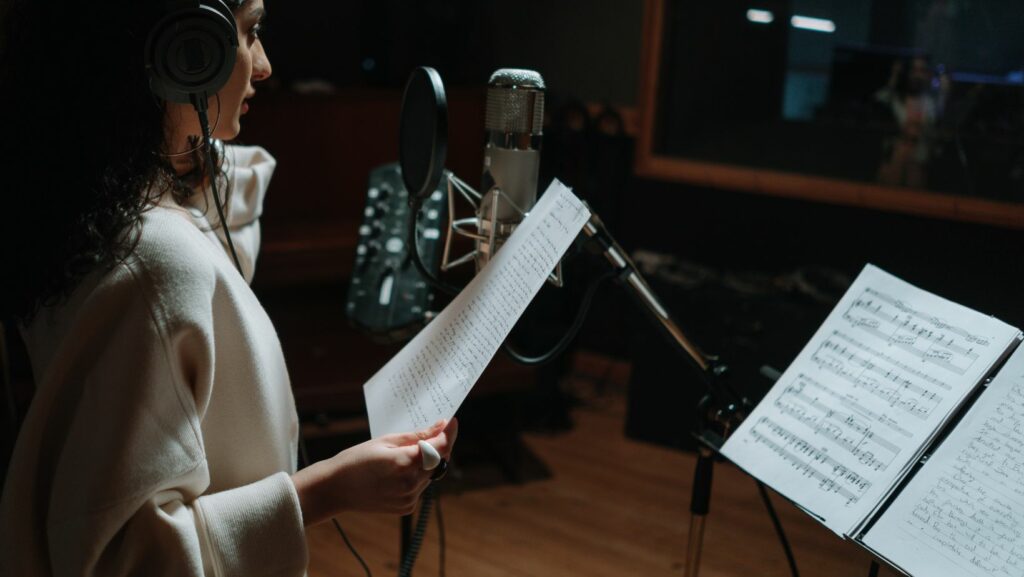Classic Movie Songs
Classic movie songs from the golden age of cinema continue to captivate audiences. This period, stretching from the 1930s to the 1940s, gave birth to some of the most memorable and unforgettable soundtracks in film history. The 1930s saw the rise of the talking picture, which brought iconic soundtracks to the forefront of cinema. “Over the Rainbow,” performed by Judy Garland in “The Wizard of Oz” (1939), remains an emblematic song from this era.  The film’s score, composed by Harold Arlen with lyrics by Yip Harburg, captured audiences’ imaginations and has since become a cultural touchstone. Another standout is “As Time Goes By,” featured in “Casablanca” (1942). Though the film was released in 1942, the song itself was written in 1931 by Herman Hupfeld. Its enduring appeal highlights the rich musical legacy of the 1930s.
The film’s score, composed by Harold Arlen with lyrics by Yip Harburg, captured audiences’ imaginations and has since become a cultural touchstone. Another standout is “As Time Goes By,” featured in “Casablanca” (1942). Though the film was released in 1942, the song itself was written in 1931 by Herman Hupfeld. Its enduring appeal highlights the rich musical legacy of the 1930s.
The 1940s produced numerous unforgettable movie songs that left a lasting mark on popular culture. “White Christmas,” written by Irving Berlin and performed by Bing Crosby in “Holiday Inn” (1942), topped the charts and became a holiday staple. “Swinging on a Star,” sung by Bing Crosby in “Going My Way” (1944), showcases intricate lyrics and catchy melodies that have stood the test of time. Finally, “When You Wish Upon a Star,” from Disney’s “Pinocchio” (1940), composed by Leigh Harline with lyrics by Ned Washington, encapsulates the wonder and hope of the golden age’s cinematic music. These songs, emblematic of their time, continue enchanting listeners, bridging the past and present through their timeless melodies.
Evolution of Movie Music in Later Decades
Movie music evolved significantly in the later decades, shaping and reflecting cultural shifts. The 1950s saw doo-wop and rock ‘n’ roll permeate film soundtracks. Songs like “Rock Around the Clock” from “Blackboard Jungle” (1955) introduced rock music to mainstream cinema. In the 1960s, musical films gained immense popularity. “The Sound of Music” (1965) and its song “My Favorite Things” became cultural landmarks. This era cemented the relationship between musicals and Hollywood.
In the 1960s, musical films gained immense popularity. “The Sound of Music” (1965) and its song “My Favorite Things” became cultural landmarks. This era cemented the relationship between musicals and Hollywood.
The 1970s introduced disco and pop into movie soundtracks. The Bee Gees’ “Stayin’ Alive” from “Saturday Night Fever” (1977) defined the disco era. The 1980s expanded the use of pop and rock with hit songs like “Eye of the Tiger” from “Rocky III” (1982). These decades showcased the versatility of film music, integrating contemporary genres seamlessly into storytelling.
Iconic Composers and Lyricists
Exploring classic movie songs requires recognizing the contributions of iconic composers and lyricists who shaped film music history. Rodgers and Hammerstein redefined musical theater and film with their collaborative works. Their first musical, “Oklahoma!” (1943), became a cinematic success in 1955, featuring memorable songs like “Oh, What a Beautiful Mornin'” and “People Will Say We’re in Love.” Their subsequent musicals-turned-movies like “The Sound of Music” (1965) and “Carousel” (1956) showcased their ability to create emotionally resonant scores and compelling lyrics. “The Sound of Music,” in particular, remains a timeless classic with songs like “My Favorite Things” and “Do-Re-Mi,” influencing generations of moviegoers and musicians.
John Williams, a prolific composer, profoundly impacted film music with his memorable scores. Known for his collaborations with Steven Spielberg and George Lucas, Williams’ work includes iconic themes for “Star Wars” (1977), “Jaws” (1975), and “Indiana Jones” (1981). His compositions, characterized by powerful orchestration and memorable motifs, elevated the emotional intensity of these films. The “Star Wars” theme, in particular, remains one of the most recognizable and celebrated pieces in film history, illustrating Williams’ ability to blend classical and modern musical elements to enhance storytelling.
Classic movie songs hold a unique place in the hearts of audiences, transcending time and cultural shifts. Their melodies and lyrics continue to evoke deep emotions and memories, enhancing the cinematic experience. From the golden age of cinema to contemporary films, these songs have not only defined moments on screen but have also influenced popular culture. Iconic composers and lyricists have left an indelible mark on film history, with their timeless creations resonating across generations. As listeners revisit these beloved tracks, they find themselves transported to the magical worlds these songs helped to create.

